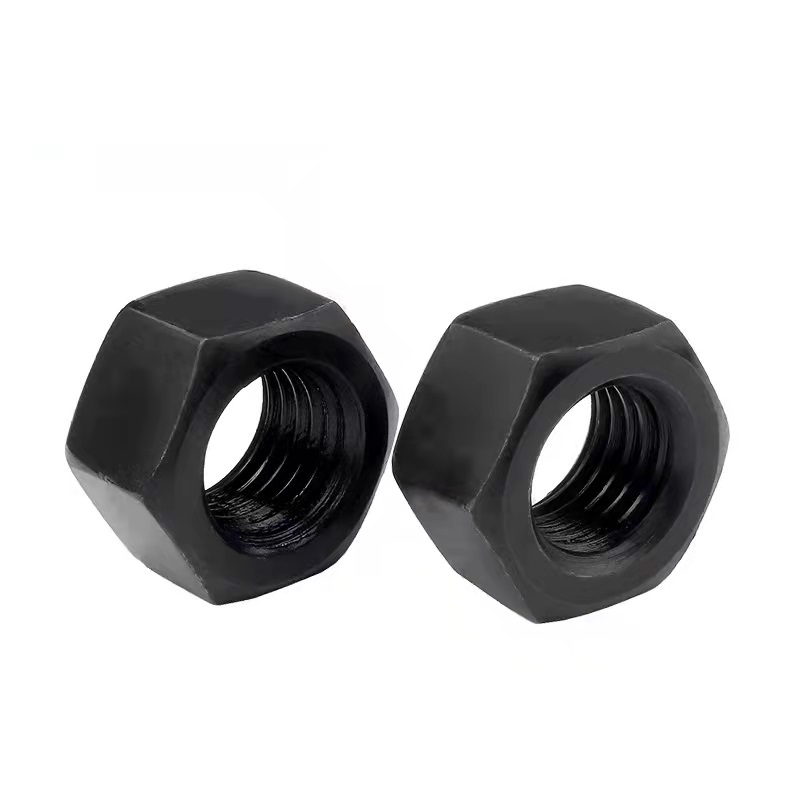6-32 rmr screws suppliers
Dec . 05, 2024 02:04 Back to list
6-32 rmr screws suppliers
Understanding 6-32% RMR Screws A Guide for Suppliers and Buyers
In the vast world of fasteners, screws serve an integral role by providing strength, stability, and secure connections in a variety of applications. Among the different types of screws available, the 6-32 RMR screws have garnered attention for their specific size and thread characteristics that cater to various industrial needs. This article will delve into the importance of 6-32 RMR screws, their applications, and considerations for suppliers and buyers in the market.
What are 6-32 RMR Screws?
The designation “6-32” refers to the screw's gauge size and thread count. Specifically, a 6-32 screw has a nominal diameter of 0.1380 inches (or approximately 3.51 mm) and features 32 threads per inch. The “RMR” stands for a specific type of thread design or coating that enhances the screw's performance in particular environments. RMR (RoHS compliant, Metric Regular) screws are often featured due to their reliability and versatility in securing components and materials in various applications.
Applications of 6-32 RMR Screws
6-32 RMR screws find widespread use across multiple sectors, including
1. Electronics In the electronics industry, 6-32 screws are commonly used to secure components in gadgets and devices. Their size is ideal for compact spaces, ensuring that electronic devices are not only functional but also durable.
2. Automotive The automotive industry favors 6-32 screws for their robustness, which is essential for assembling critical components. These screws can resist vibrations and impacts, making them perfect for use in engines and other high-performance applications.
3. Construction In the construction sector, 6-32 screws provide reliable fastening solutions for setups and installations, including cabinetry, electrical fixtures, and more. Their ability to hold materials together securely makes them a staple in construction projects.
4. Aerospace The aerospace industry often requires high precision and reliability in fasteners due to safety concerns. 6-32 RMR screws are often employed in aircraft assemblies, where strength and weight considerations are paramount.
Considerations for Suppliers
For suppliers of 6-32 RMR screws, there are several factors to consider in order to meet customers’ expectations and industry standards
6-32 rmr screws suppliers

1. Quality Control Ensuring that screws are manufactured under strict quality control measures is essential. This includes adherence to industry standards such as ASTM International or ISO certifications. Suppliers must provide consistent quality to build trust with their client base.
2. Material Selection The choice of material can significantly affect the performance of 6-32 RMR screws. Common materials include stainless steel, carbon steel, and brass. Each material has its own properties—such as corrosion resistance and tensile strength—which should be taken into consideration based on the intended application.
3. Coating Options Depending on their usage, RMR screws may also require protective coatings. Common coatings include zinc plating or nylon coatings that enhance corrosion resistance and improve performance in challenging environments.
4. Customer Engagement Building strong relationships with customers is essential for suppliers. This can involve providing expert advice on the right screws for specific applications or offering customization options to meet unique project requirements.
Buyer Considerations
For buyers looking to procure 6-32 RMR screws, several considerations should come into play
1. Supplier Reputation It is vital to choose suppliers with a good track record of delivering high-quality products. Reviewing customer testimonials and case studies can provide insights into a supplier’s reliability.
2. Specifications Matching Ensure that the 6-32 RMR screws meet the specific requirements of your project, including dimensions, materials, and threading. Misalignment can lead to failures in the construction or assembly process.
3. Cost vs. Quality While cost is always a factor in procurement, it is essential to strike a balance between cost and quality. Cheaper screws may save money upfront but could lead to higher costs in repairs and replacements in the future.
4. Lead Times Be aware of the lead times for orders, especially for large-scale projects. Ensuring timely delivery can prevent delays in project timelines.
Conclusion
In summary, 6-32 RMR screws are crucial components in various industries, trusted for their precise dimensions and reliable performance. Suppliers and buyers both have their roles to play in ensuring that the screws meet the demands of modern applications. By focusing on quality, material selection, and maintaining strong communication, both parties can successfully navigate the fastener market, ensuring projects are completed efficiently and effectively.
Latest news
-
Reliable Axle Nuts Supplier | Quality & Precision Fasteners
NewsAug.23,2025
-
Durable Bolts for Lawn Mower Handle - Top Supplier & Manufacturer
NewsAug.22,2025
-
High-Quality Bolts for Lawn Mower Handle Supplier & Manufacturer
NewsAug.21,2025
-
Reliable Axle Nuts Supplier | High-Quality Automotive Parts
NewsAug.19,2025
-
Premium Wire Bolts Suppliers | Durable & Reliable Fasteners
NewsAug.18,2025
-
Leading Metric Wood Screw Companies & Manufacturers
NewsAug.17,2025
